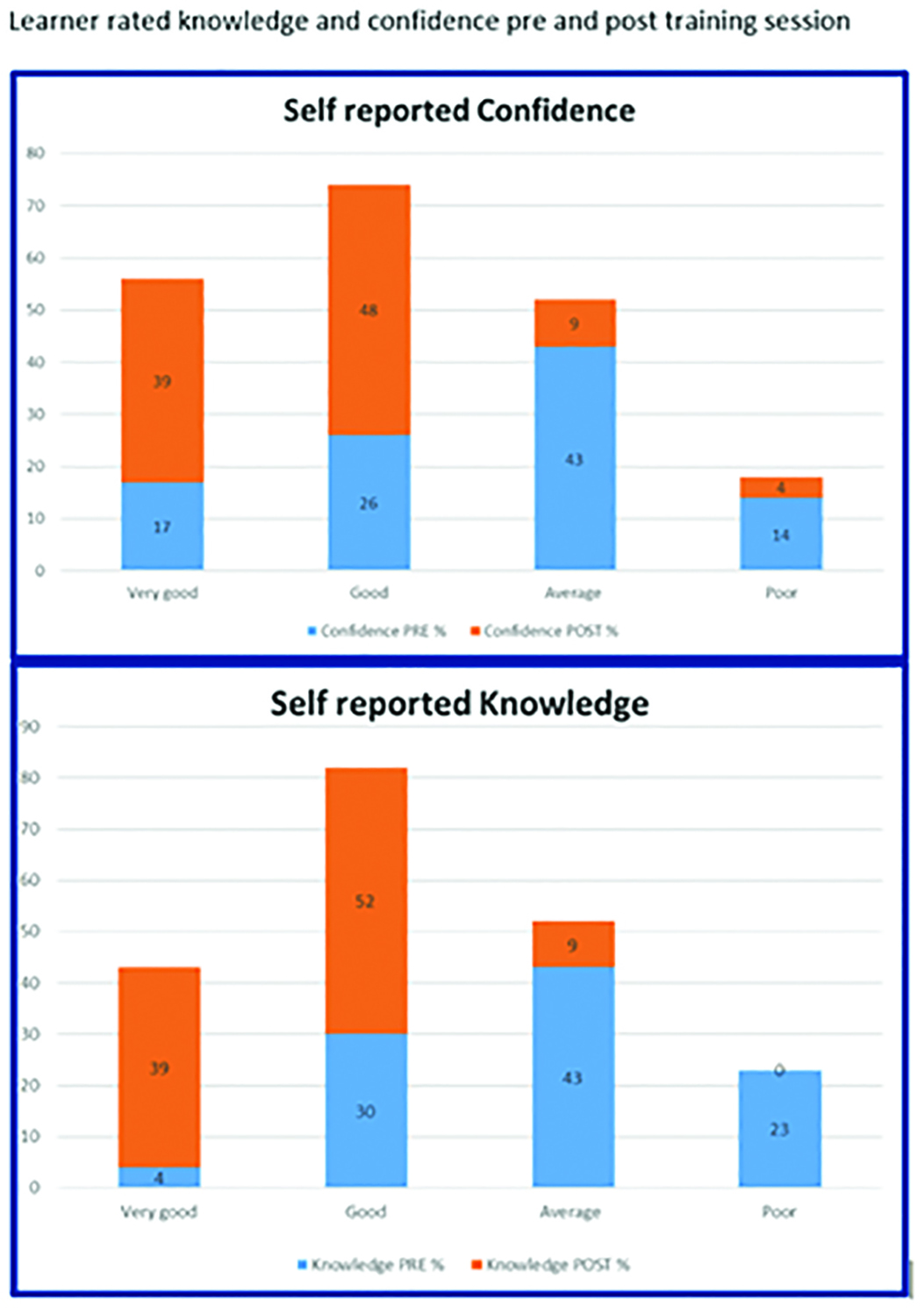
Working with People with Lived Experience (PLE) can provide a powerful learning experience, and services can be improved by including the expertise of PLE [1]. Motivated by a North East and North Cumbria Integrated Care Board patient safety alert [2], a training session collaborating with PLE of Learning Disability (LD) was developed. The primary objective was to evaluate inclusion of PLE in simulation training, and to explore viability for future expansion. Other objectives were to expand our repertoire of acute care scenarios to include people with existing long-term conditions (including mental health conditions and/ or neuro-developmental conditions), and to develop scenarios requiring professionals to individualise their communication approaches to the person.
A novel training session for foundation doctors was developed, using actors from ‘Northern Stars’ - a local performing arts company for people with LD. Actors met our simulation team for pre-briefing, tour of the simulation facility and received scenario scripts ahead of planned training dates. Each training session included an introductory plenary for learners, which covered communication, LD safety themes and pre-briefing. Subsequently, learners split into groups to undertake simulation activities. A high fidelity scenario (a patient with abdominal pain) with learning outcomes on communication, assessing pain and diagnostic overshadowing, ran in parallel with a simulated role-play (a patient with head injury requiring CT scan) with learning outcomes on explanation of investigations and making reasonable adjustments.
31 foundation doctors participated in training lasting 2 hours. There were significant improvements in learner rated confidence and knowledge following the training (Figure 1). Themes from narrative feedback included intentions to change future practice such making use of ‘hospital passports,’ Makaton (signs and symbols communication method) and adjusting communication style. Participants also commented on the training’s uniqueness (many having received little prior training on the topic.) Actors reported high levels of satisfaction with pre-briefings and understanding of the training’s purpose. All felt content during the session, and all were highly satisfied it was useful for the learners. Some actors also reported benefits on their own wellbeing.
Collaborating with people with lived experience of LD was successful; training proved very effective for learners and feasibility was proved for future expansion. There were also unintended positive outcomes for actor participants. We plan to run the training annually as part of Foundation Program training, and to expand to other staff groups.
As the submitting author, I can confirm that all relevant ethical standards of research and dissemination have been met. Additionally, I can confirm that the necessary ethical approval has been obtained, where applicable.
1. The power of lived experience to enhance health, World Health Organisation, 2022, https://youtu.be/8I4wA52BPGU
2. NENC ICB Learning Disability safety alert NENCSSA1, August 2024
Acknowledgement to Northern Stars performing arts
